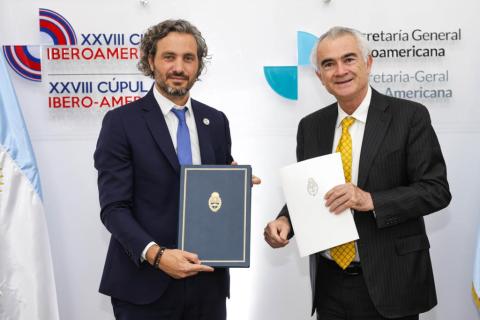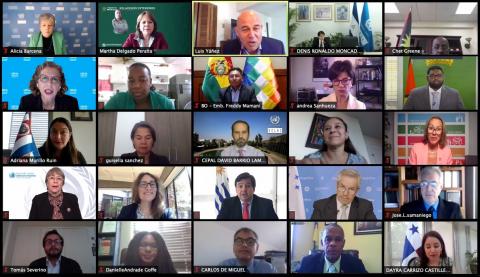Briefing note
The role of trade agreements in advancing towards a more inclusive society and the effects of climate change will be two of the main topics of the Twelfth Annual Conference on Global Economic Analysis to be held at ECLAC headquarters in Santiago, Chile from 10-12 June.
The conference will be inaugurated on 10 June at 2 p.m. by ECLAC Executive Secretary Alicia Bárcena; the Manager of Integration and Trade at the Inter-American Development Bank (IDB), Antoni Estevadeordal; University of Columbia professor and former Executive Secretary of ECLAC, José Antonio Ocampo; and the Executive Director of the Center for Global Trade Analysis at Purdue University, Thomas Hertel.
This year's conference,Trade Integration and Sustainable Development: Looking for an Inclusive World, is organized jointly by ECLAC, the IDB and the Global Trade Analysis Project (GTAP) of the Center for Global Trade Analysis. The meeting is sponsored by the Central Bank of Chile and the Government of Spain.
Economists, researchers and policymakers from around the world participate in the GTAP network and share a database to analyze trade, resources and environmental policy issues.
The network is supported by a consortium of international agencies and participates in this annual conference in which economists and decision makers exchange experiences to contribute to sustainable development.
Earlier conferences were held in the United States, Germany, Ethiopia and Finland, with an average of 215 participants and 140 presentations.
The conference at ECLAC seeks to establish synergies among economists and public policy-makers from different continents on the effects of terms of trade shocks, the consequences of the evolution of commodity prices on the economy, including the food crisis, the global energy situation, and efforts to meet the Millennium Development Goals.



